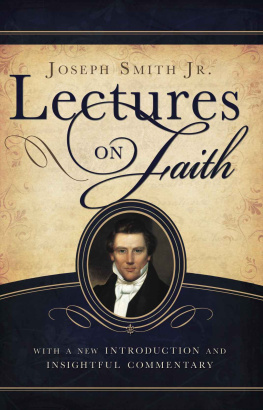Robert G. Ingersoll - The Gods and Other Lectures
Here you can read online Robert G. Ingersoll - The Gods and Other Lectures full text of the book (entire story) in english for free. Download pdf and epub, get meaning, cover and reviews about this ebook. year: 2011, publisher: Barnes & Noble, genre: Science. Description of the work, (preface) as well as reviews are available. Best literature library LitArk.com created for fans of good reading and offers a wide selection of genres:
Romance novel
Science fiction
Adventure
Detective
Science
History
Home and family
Prose
Art
Politics
Computer
Non-fiction
Religion
Business
Children
Humor
Choose a favorite category and find really read worthwhile books. Enjoy immersion in the world of imagination, feel the emotions of the characters or learn something new for yourself, make an fascinating discovery.
- Book:The Gods and Other Lectures
- Author:
- Publisher:Barnes & Noble
- Genre:
- Year:2011
- Rating:5 / 5
- Favourites:Add to favourites
- Your mark:
- 100
- 1
- 2
- 3
- 4
- 5
The Gods and Other Lectures: summary, description and annotation
We offer to read an annotation, description, summary or preface (depends on what the author of the book "The Gods and Other Lectures" wrote himself). If you haven't found the necessary information about the book — write in the comments, we will try to find it.
The author said he preferred the storm and tempest of thought and action, rather than the dead calm of ignorance and faith. The title essay in this 1892 collection of five lectures on skepticism and religion asserts, An honest god is the noblest work of man. Includes Humboldt, Thomas Paine, Individuality, and Heretics and Heresies.
The Gods and Other Lectures — read online for free the complete book (whole text) full work
Below is the text of the book, divided by pages. System saving the place of the last page read, allows you to conveniently read the book "The Gods and Other Lectures" online for free, without having to search again every time where you left off. Put a bookmark, and you can go to the page where you finished reading at any time.
Font size:
Interval:
Bookmark:
ROBERT G. INGERSOLL

This 2011 edition published by Barnes & Noble, Inc.
All rights reserved. No part of this publication may be reproduced, stored in a retrieval system, or transmitted, in any form or by any means, electronic, mechanical, photocopying, recording, or otherwise, without prior written permission from the publisher.
Barnes & Noble, Inc.
122 Fifth Avenue
New York, NY 10011
ISBN: 978-1-4114-6104-8
THE GODS
A N H ONEST G OD IS THE N OBLEST W ORK OF M AN
EACH nation has created a god, and the god has always resembled his creators. He hated and loved what they hated and loved, and he was invariably found on the side of those in power. Each god was intensely patriotic, and detested all nations but his own. All these gods demanded praise, flattery, and worship. Most of them were pleased with sacrifice, and the smell of innocent blood has ever been considered a divine perfume. All these gods have insisted upon having a vast number of priests, and the priests have always insisted upon being supported by the people, and the principal business of these priests has been to boast about their god, and to insist that he could easily vanquish all the other gods put together.
These gods have been manufactured after numberless models, and according to the most grotesque fashions. Some have a thousand arms, some a hundred heads, some are adorned with necklaces of living snakes, some are armed with clubs, some with sword and shield, some with bucklers, and some have wings as a cherub; some were invisible, some would show themselves entire, and some would only show their backs; some were jealous, some were foolish, some turned themselves into men, some into swans, some into bulls, some into doves, and some into Holy Ghosts, and made love to the beautiful daughters of men. Some were marriedall ought to have beenand some were considered as old bachelors from all eternity. Some had children, and the children were turned into gods and worshiped as their fathers had been. Most of these gods were revengeful, savage, lustful, and ignorant. As they generally depended upon their priests for information, their ignorance can hardly excite our astonishment.
These gods did not even know the shape of the worlds they had created, but supposed them perfectly flat. Some thought the day could be lengthened by stopping the sun, that the blowing of horns could throw down the walls of a city, and all knew so little of the real nature of the people they had created, that they commanded the people to love them. Some were so ignorant as to suppose that man could believe just as he might desire, or as they might command, and that to be governed by observation, reason, and experience was a most foul and damning sin. None of these gods could give a true account of the creation of this little earth. All were wofully deficient in geology and astronomy. As a rule, they were most miserable legislators, and as executives, they were far inferior to the average of American presidents.
These deities have demanded the most abject and degrading obedience. In order to please them, man must lay his very face in the dust. Of course, they have always been partial to the people who created them, and have generally shown their partiality by assisting those people to rob and destroy others, and to ravish their wives and daughters.
Nothing is so pleasing to these gods as the butchery of unbelievers. Nothing so enrages them, even now, as to have some one deny their existence.
Few nations have been so poor as to have but one god. Gods were made so easily, and the raw material cost so little, that generally the god market was fairly glutted, and heaven crammed with these phantoms. These gods not only attended to the skies, but were supposed to interfere in all the affairs of men. They presided over everybody and everything. They attended to every department. All was supposed to be under their immediate control. Nothing was too smallnothing too large; the falling of sparrows and the motions of the planets were alike attended to by these industrious and observing deities. From their starry thrones they frequently came to the earth for the purpose of imparting information to man. It is related of one that he came amid thunderings and lightnings in order to tell the people that they should not cook a kid in its mother's milk. Some left their shining abodes to tell women that they should, or should not, have children, to inform a priest how to cut and wear his apron, and to give directions as to the proper manner of cleaning the intestines of a bird.
When the people failed to worship one of these gods, or failed to feed and clothe his priests, (which was much the same thing,) he generally visited them with pestilence and famine. Sometimes he allowed some other nation to drag them into slaveryto sell their wives and children; but generally he glutted his vengeance by murdering their first-born. The priests always did their whole duty, not only in predicting these calamities, but in proving, when they did happen, that they were brought upon the people because they had not given quite enough to them.
These gods differed just as the nations differed; the greatest and most powerful had the most powerful gods, while the weaker ones were obliged to content themselves with the very off-scourings of the heavens. Each of these gods promised happiness here and hereafter to all his slaves, and threatened to eternally punish all who either disbelieved in his existence or suspected that some other god might be his superior; but to deny the existence of all gods was, and is, the crime of crimes. Redden your hands with human blood; blast by slander the fair fame of the innocent; strangle the smiling child upon its mother's knees; deceive, ruin and desert the beautiful girl who loves and trusts you, and your case is not hopeless. For all this, and for all these you may be forgiven. For all this, and for all these, that bankrupt court established by the gospel, will give you a discharge; but deny the existence of these divine ghosts, of these gods, and the sweet and tearful face of Mercy becomes livid with eternal hate. Heaven's golden gates are shut, and you, with an infinite curse ringing in your ears, with the brand of infamy upon your brow, commence your endless wanderings in the lurid gloom of hellan immortal vagrantan eternal outcasta deathless convict.
One of these gods, and one who demands our love, our admiration and our worship, and one who is worshiped, if mere heartless ceremony is worship, gave to his chosen people for their guidance, the following laws of war: "When thou comest nigh unto a city to fight against it, then proclaim peace unto it. And it shall be if it make thee answer of peace, and open unto thee, then it shall be that all the people that is found therein shall be tributaries unto thee, and they shall serve thee. And if it will make no peace with thee, but will make war against thee, then thou shalt besiege it. And when the Lord thy God hath delivered it into thy hands, thou shalt smite every male thereof with the edge of the sword. But the women and the little ones, and the cattle, and all that is in the city, even all the spoil thereof, shalt thou take unto thyself, and thou shalt eat the spoil of thine enemies which the Lord thy God hath given thee. Thus shalt thou do unto all the cities which are very far off from thee, which are not of the cities of these nations. But of the cities of these people which the Lord thy God doth give thee for an inheritance, thou shalt save alive nothing that breatheth."
Is it possible for man to conceive of anything more perfectly infamous? Can you believe that such directions were given by any being except an infinite fiend? Remember that the army receiving these instructions was one of invasion. Peace was offered upon condition that the people submitting should be the slaves of the invader; but if any should have the courage to defend their homes, to fight for the love of wife and child, then the sword was to spare nonenot even the prattling, dimpled babe.
Font size:
Interval:
Bookmark:
Similar books «The Gods and Other Lectures»
Look at similar books to The Gods and Other Lectures. We have selected literature similar in name and meaning in the hope of providing readers with more options to find new, interesting, not yet read works.
Discussion, reviews of the book The Gods and Other Lectures and just readers' own opinions. Leave your comments, write what you think about the work, its meaning or the main characters. Specify what exactly you liked and what you didn't like, and why you think so.












